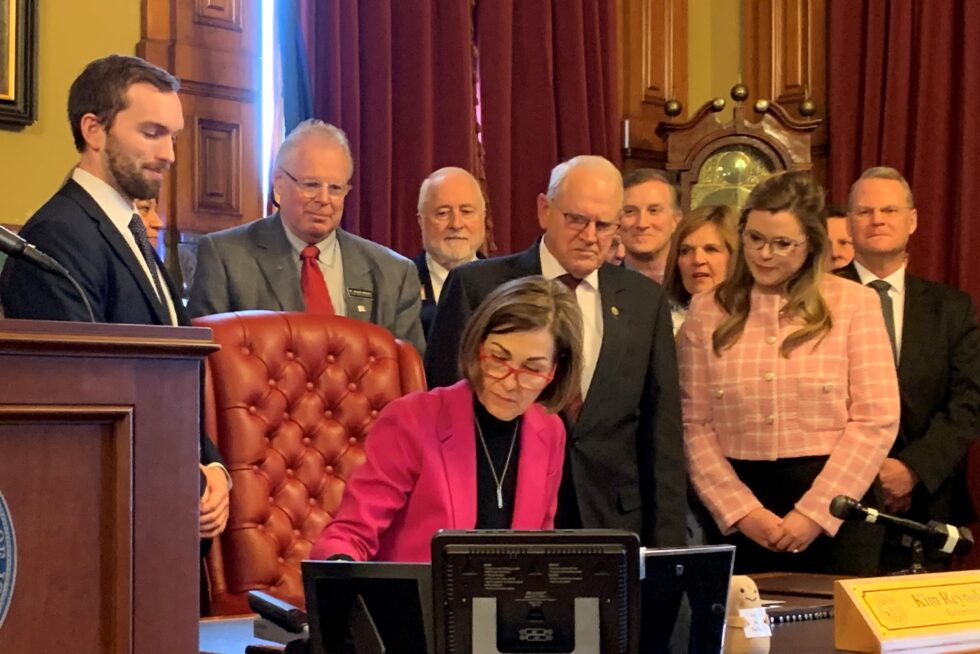Governor Kim Reynolds has signed a bill into law that raises teacher salaries, increases general state spending for schools and overhauls Iowa’s Area Education Agencies.
“Some schools haven’t used some of the AEA services, despite being forced to pay for them,” Reynolds said. “Others have felt that they didn’t receive the quality that they expect.”
The new law puts local districts in control of some funding that currently flows directly to the AEAs and gives state officials more authority to oversee special education. Schools will still be required to use the AEA’s special education consultants, but districts will be able to spend 10 percent of their special education allotment elsewhere, plus districts will have the option of redirecting money that currently pays for other AEA services, like teacher training.
“Since 2018, the U.S. Department of Education has designated Iowa as ‘needs assistance’ to meet the requirements of federal law related to special education,” Reynolds said. “…This legislation intends to resolve these issues.”
Reynolds held a ceremony in her capitol office and was surrounding by Republican legislators and key staff as she signed the bill into law. House Education Committee chairman Skyler Wheeler, a Republican from Hull, helped lead House negotiations with educators, parents and advocates for both large and small schools that resulted in changes to the governor’s original bill.
“We held numerous meetings with everyone and worked with all sides to come to an agreement that is a win for education in our state,” Wheeler said.
Senate Education Committee chairman Ken Rozenboom, a Republican from Oskaloosa, said the fee-for-service model in the new law provides accountability and transparency and gives schools a way to judge the value of AEA services.

Governor Reynolds signs HF2612 into law on March 27, 2024. (RI photo)
“The AEAs have done a tremendous amount of good for many, many years in Iowa and all of us are appreciative of that,” Rozenboom said, “but the world has changed since the AEAs were created in 1974 and reform is needed.”
House Democratic Leader Jennifer Konfrst said the new law is universally unpopular and it will be an issue for voters in November. “Think about the fmailies who have so much uncertainty now as they’re wondering about what will happen to the services in their communities,” Konfrst said. “What will happen to their kids who are getting AEA services? There are so many questions.”
Other elements of the new law will raise beginning teacher pay to $50,000 within two years and veteran teachers must be paid at least $62,000 a year if they’ve been teaching for at least 12 years. Paraeducators are to get raises as well.








